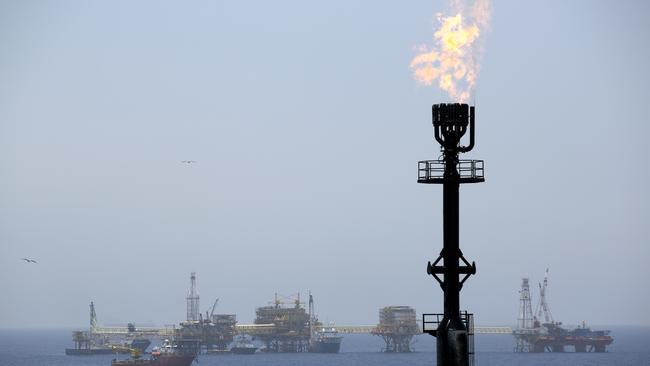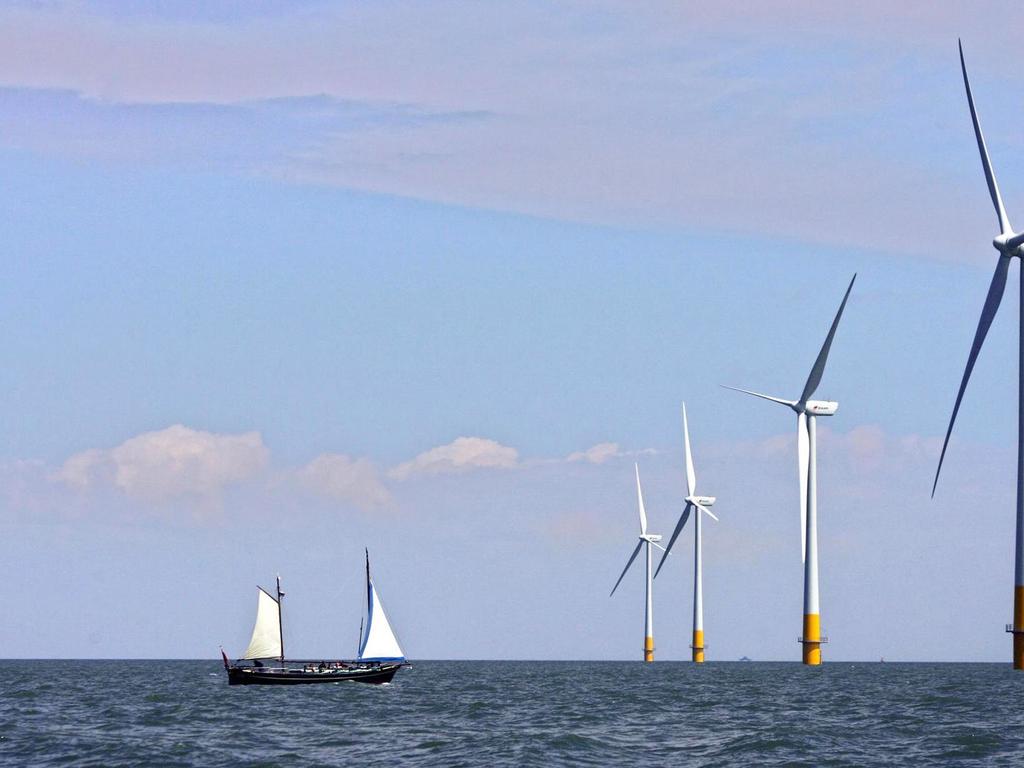Rerating on cards for energy stocks: JPMorgan
ASX-listed energy companies are primed for a rerating despite ESG headwinds, JPMorgan says.

ASX-listed energy companies are primed for a rerating despite ESG headwinds, JPMorgan says.
The US investment bank notes a “clear and noticeable shift” upward in the value on offer across Australian exploration and production (E&P) companies this year as share prices have lagged higher commodity prices.
That’s been driven by an increasing focus on ESG considerations on the part of investors.
Thus the sector is trading a massive 50 per cent below the valuation implied by the Brent crude oil price.
Whereas at current levels around $US72.50 a barrel, Brent crude oil is about 23 per cent above its pre-Covid high, the S&P/ASX 200 Energy sector is more than 30 per cent below its pre-Covid high.
It’s a disparity that investors can’t afford to ignore, according to JPMorgan analysts.
In their view, relatively low share prices in the E&P sector are driving increased mergers and acquisitions interest and this could be the catalyst to drive the sector towards fair value.
“Investor concerns regarding fossil fuel extraction are not a new phenomenon,” the analysts say.
“However, while in the past much of the focus has been on coal-exposed companies, there has been a noticeable shift towards gas companies.
“On average, since the start of the year E&P stocks under our coverage have not changed in value while Brent is up 40 per cent.”
As a measure of risk, they also assessed what the E&P stock prices were implying for cost of capital. The implied weighted-average cost of capital across their coverage is 11.2 per cent, 280 basis points higher than their base case.
They also estimated cost abatement already implied in stock prices with carbon costs ranging from $US78 a tonne of carbon dioxide for Santos to $US345 a tonne for Oil Search.
While the ESG headwinds are only likely to intensify, the analysts note that the implied risk in the sector is already “substantial”.
Moreover, while the sector has underperformed, investors who steer clear for environmental reasons could be giving up a golden opportunity.
Indeed, low equity valuations have started to drive M&A activity across the sector.
“So far, the bids have been largely scrip-based but we believe cash acquisitions could be the catalyst for sector performance,” the JPMorgan analysts say.
“On that basis, we remain positive on the sector with the majority of stocks we cover remaining overweight.”
Their comments come after BHP agreed to merge its petroleum assets with Woodside in a scrip-based deal worth $20bn that will create one of the world’s largest energy companies, while Oil Search and Santos have agreed to merge into a $21bn LNG powerhouse.
JPMorgan analysts note that in the past 12-18 months, there has been a “notable shift in sentiment” among market participants – asset owners, asset managers, corporates, regulators and governments – against the oil and gas industry.
“Market actors are placing increasing emphasis on ESG themes within the investment landscape,” they say. “What was previously considered a niche is now becoming mainstream.”
Looking at the frequency of news articles published per week relating to ASX 300 companies and including terms referring to environmental factors such as “climate change”, “energy transition”, “low carbon”, “renewable energy”, “net zero” and “ESG”, the analysts note a “material step change in the frequency of these terms over time, particularly over the last 12-18 months”.
The same trend is evident in corporate disclosures over the corresponding period.
At the same time, asset owners and investment managers are increasing their allocation to funds that incorporate ESG factors to varying extents within their frameworks, with the Responsible Investment Association of Australia estimating that responsible investment assets under management (AUM) comprised 40 per cent of total AUM as of December last year, compared to 31 per cent at the end of 2014.
Over this period, responsible investing AUM showed a compound annual growth rate of 13 per cent, versus 8 per cent growth in total AUM.
“Over the course of this year, there has been a seismic shift in how the market views oil & gas companies, with a clear deviation between commodity prices and valuations,” JPMorgan analysts say. “The persistence of this dislocation leads us to believe that this is primarily being driven by investors’ rising concerns around ESG risks broadly across the sector, particularly with a nexus around climate change risks.”
Ultimately, they believe the overlay of increased ESG risk on E&P companies will “only strengthen”, placing greater burden on the companies to continue to lower emissions, which will come at a financial cost.
“Notwithstanding oil prices, we believe the catalyst could be M&A,” they says.








To join the conversation, please log in. Don't have an account? Register
Join the conversation, you are commenting as Logout